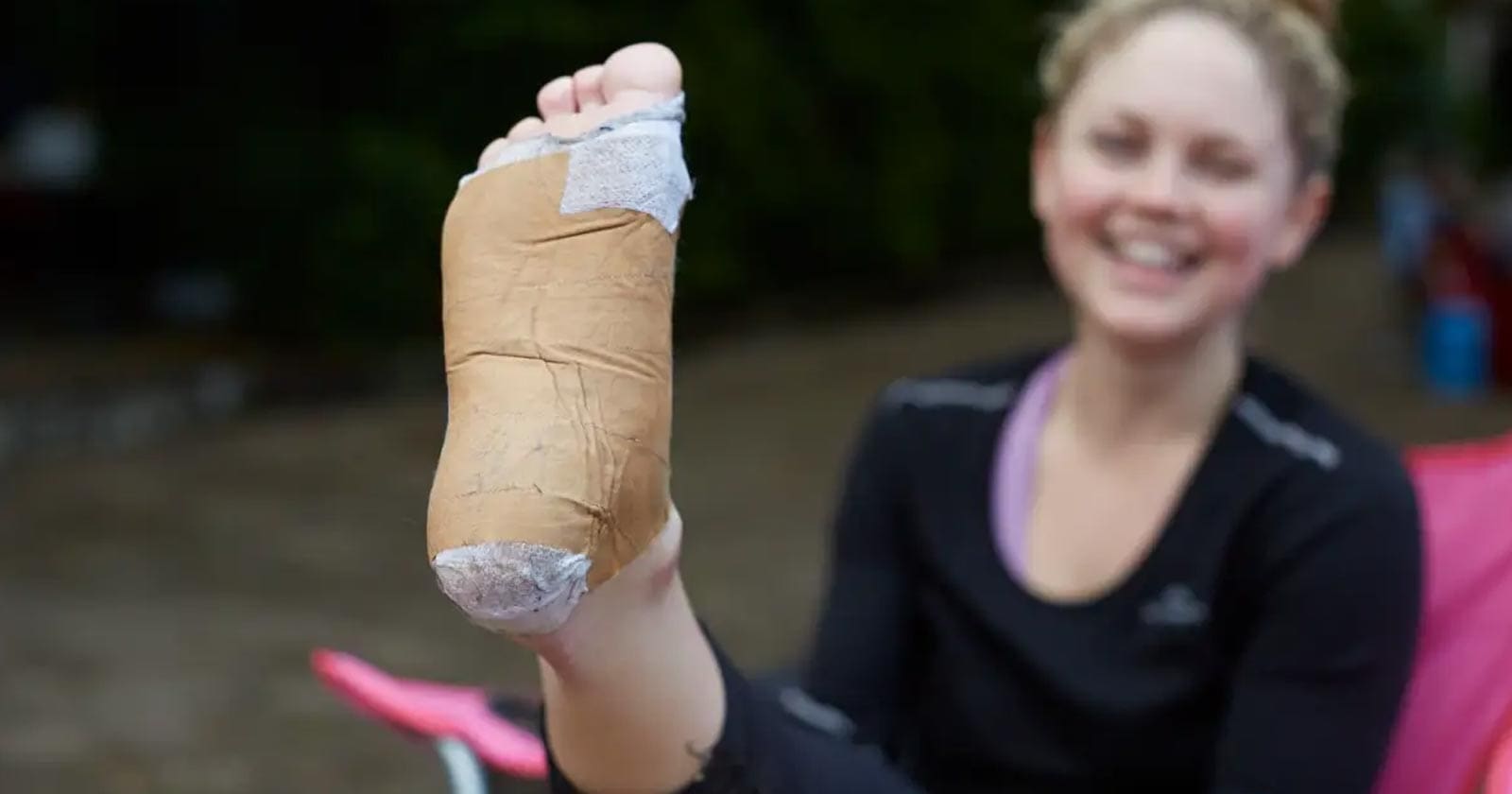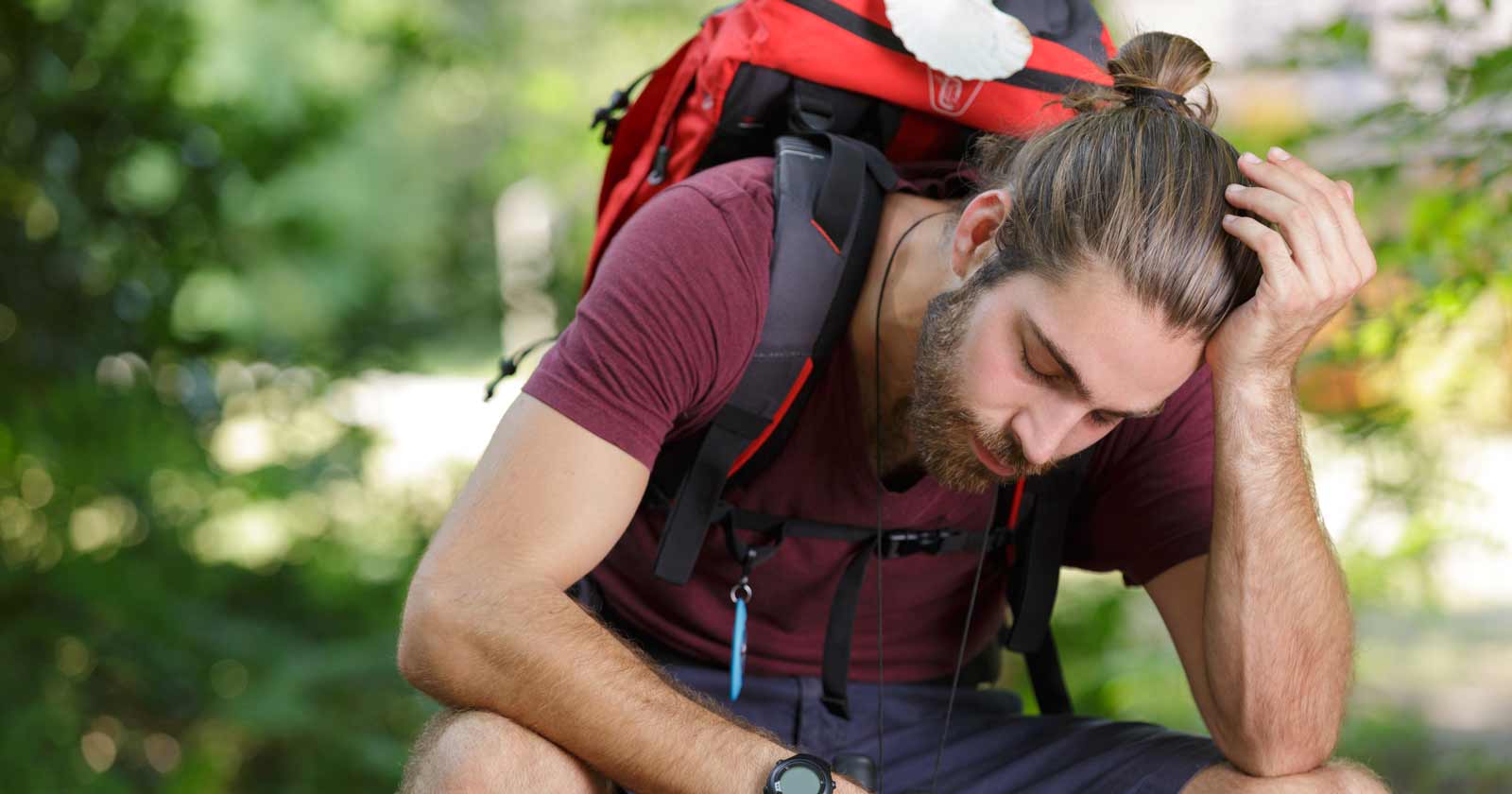Keep yourself hydrated on every hike
Keeping yourself hydrated during any hike is crucial as the exertion makes you susceptible to dehydration, which can make a hike less enjoyable and potentially dangerous. There are many reports of hikers needing to be rescued due to dehydration because they ran out of water. Sadly, some have not survived.
You can become dehydrated even during winter but your risks are increased dramatically during dry, hot conditions under the Aussie sun. The easiest way to keep yourself hydrated is to drink plenty of fluids before, during and after any adventure.
What is dehydration?
Dehydration occurs when you don’t have enough fluids in your body. If severe, dehydration can cause serious problems. If you suspect you are (or someone else is) dehydrated, stop, get out of the heat and re-hydrate. In severe cases, stop and seek medical attention. You are dehydrated if your body doesn’t have enough water to keep it working properly. It can happen when your body loses too much fluid from excessive sweating. If dehydration is not corrected by fluid intake, eventually urination stops, the kidneys fail, and the body can’t remove toxic waste products. In extreme cases, dehydration may result in death.
How to spot dehydration
Mild to moderate dehydration symptoms
- Dry, sticky mouth
- Headache
- Thirst
- Decreased need to urinate
- Dark-coloured urine
- Dry skin
- Dry nasal passages
- Dry or cracked lips
- Dizziness or lightheaded
- Lethargy
- Weakness
- Sleepiness or tiredness — children are likely to be less active than usual
- Constipation
- Mood changes and slow responses
- Confusion and hallucinations
Severe dehydration symptoms
- Extreme thirst
- Rapid heartbeat
- Rapid breathing
- Very dry mouth, skin and mucous membranes
- Extreme fussiness or sleepiness in infants and children; irritability and confusion in adults
- Little or no urination — urine that is passed is a dark yellow or gold color.
- Sunken eyes
- Shriveled and dry skin that lacks elasticity and doesn’t “bounce back” when pinched into a fold
- Low blood pressure
- No tears when crying
- Fever
- In the most serious cases, heat exhaustion, delirium or unconsciousness
Test your skin: Using tow fingers grab a small amount of skin on the back of your hand. The best location to do this between your wrist and where your fingers start. Pull the skin up and let the skin go. The skin should spring back to normal position very quickly. If this takes more than a couple of seconds for the the skin to bounce back you might be dehydrated.
Check your urine: If you are well hydrated you will be ‘Clear and Copious’. This saying was taught to me years ago in Boy Scouts. It means if you are urinating often and it is clear or mostly clear then you are staying hydrated. The darker your urine, the more dehydrated you are. If your urine is brown you need to seek immediate medial attention. If you find yourself sweating a lot but are unsure when you last urinated, you need to stop and drink fluids. Avoid dark colored drinks, caffeinated drinks, and alcohol. Water or a high electrolyte drink is best.
Tips to prevent dehydration
- Drink water before hitting the trail
- Avoid alcohol prior to a hike
- Carry food and water (and make sure they are easily accessible)
- Drink water before you feel thirsty (by the time you feel thirsty, you have already started to dehydrate)
- Stay hydrated after hiking
- If you know the weather will be hot, start your hike early in the cool of the day
- Wear appropriate clothing to help keep you cool
- Don’t overexert yourself, particularly on hot days. The more you sweat, the more fluids your body is losing
Overhydration and hyponatremia
The flip side to dehydration is overhydration (hyponatraemia). Drinking too much water can damage the body and cause hyponatraemia (water intoxication), although it is rare in the general population. For water to reach toxic levels, many litres of water would have to be consumed in a short period of time. Hyponatraemia tends to occur in people with particular diseases or mental illnesses (for example, in some cases of schizophrenia), endurance athletes and in infants who are fed infant formula that is too diluted.
Overhydration is an imbalance of fluids. It happens when your body takes in or holds on to more fluid than your kidneys can remove. Drinking too much water or not having a way to remove it can cause water levels to build up. This dilutes important substances in your blood. In very extreme cases, hyponatremia may cause coma and even death.
Hyponatremia occurs when the concentration of sodium in your blood is abnormally low. Sodium is an electrolyte, and it helps regulate the amount of water that’s in and around your cells.
Many people believe that drinking water causes fluid retention (or oedema). In fact, the opposite is true. Drinking water helps the body rid itself of excess sodium, which results in less fluid retention. The body will retain fluid if there is too little water in the cells. If the body receives enough water on a regular basis, there will be no need for it to hold onto water and this will reduce fluid retention.
The symptoms of hyponatremia are similar to dehydration causing some hikers to mistakenly drink more water and exacerbate the issue.
- Fatigue
- Headaches
- Nausea
- Blurred vision
- Cramps (and eventually convulsions)
- Swelling of the brain
- Coma and possibly death.
Preventing overhydration: The key to preventing overhydration is to monitor how much you drink.
- Don’t overdrink: As a rough gauge, try drinking about 150-200ml about every 20 minutes and try not to drink more than you sweat. Weight gain during exercise is a telltale sign that you’re drinking too much.
- Add salt: Keep your salt levels balanced by occasionally drinking a sports drink with electrolytes instead of plain water and/or eating a salty snack, such as pretzels. You can also take salt tablets.
Related articles
Overhydration and Hyponatremia
How to spot and treat heat exhaustion
Tips for avoiding heatstroke when hiking






Bec
Recently became dehydrated while MTB. Scariest thing ever. Didn’t feel it coming and it just hit me. I was very ill.
It’s sneaky and occurs without you noticing. Save your own life!
It’s important to note that by the time you feel dehydrated, you are well past needing fluids. So it’s best to continually hydrate and to use electrolytes if it’s a long hike or hot day and you are drinking a lot.